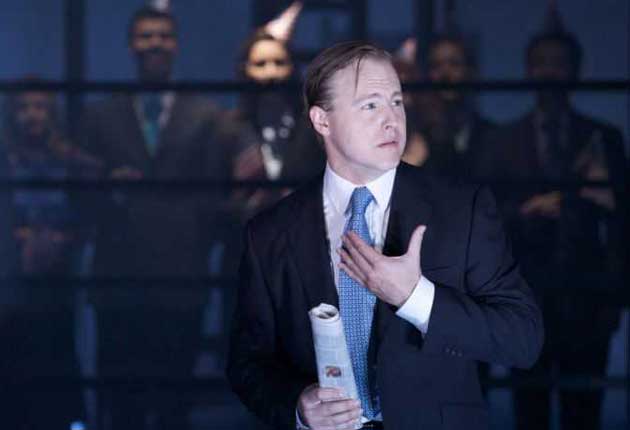Enron: Lies, greed... and all that gas
The fall of Enron provides meaty fare for the theatre, says business reporter Nick Clark, who covered the story

The Enron scandal was described as the corporate crime of the past century and, eight years after the energy company's bankruptcy, America is still trying to come to terms with the fall out. Enron forced an overhaul of US financial regulation, left 22,000 employees jobless and many penniless and, the year after it reported revenues of $101bn, collapsed in just 24 days.
It was driven by men who claimed they wanted "to change the world" and who ended up broken and behind bars. A story with the scale and scope of a Greek tragedy, it has now been dramatised for the stage.
Enron is the second work by Lucy Prebble who garnered critical acclaim for The Sugar Syndrome six years ago. In a mark of quite how topical finance has become, the remaining run at the Royal Court Theatre in London is sold out and it is set to transfer to the West End.
Enron has roots going back to 1932 but was created in its most recent form in 1985 from the merger of the Northern Natural Gas Company and Houston Natural Gas. It grew to become one of the largest companies in the US, reporting billions in revenues and boasting of political ties to the White House. The only problem? It was all a mirage. Enron inflated the value of its assets and profits, and set up a labyrinthine network of offshore accounts and dummy companies in a bid to artificially inflate the share price. Shortly after 9/11 the company imploded. There are parallels with today. Debt spiralling out of control based on assets that were worthless. The idea, as one character says, that "things are becoming divorced from their underlying realities".
Prebble has clearly done her research, and caveats the work heavily as "inspired" by real events to avoid blunting the drama. She points those wanting to look further towards Bethany McLean and Peter Elkind's The Smartest Guys in the Room and the excellent documentary of the same name, as well as Loren Fox's Enron: The Rise and Fall.
To dramatise a story about an American company for the stage, though, an oil and gas company at that, expressing the atmosphere of the time, explaining complex accounting structures and bringing the characters to life is no mean feat.
Enron is presented as an all-singing, all-dancing extravaganza, with a sumptuous set. A few of the musical numbers grate, but the set pieces – especially a striking scene detailing how Enron manipulated California's electricity grid in the wake of deregulation using lightsabres – are spectacular.
The play prejudges no financial knowledge and stops to explain the jargon along the way. If this results in the action dragging slightly, it's probably worth it.
While characters start as pastiches of Wall Street's Gordon Gekko and other stereotypes from Hollywood, they are lifted by the excellence of Samuel West as Enron chief executive Jeffrey Skilling and Tim Pigott-Smith as chairman Ken Lay, a man more interested in picking the interiors for his corporate jet then dealing with the collapse of the company.
It may be the most notorious corporate crime in living memory, but beyond the jargon and the Wall Street names lies the basest of human emotions. Enron is wildly ambitious and if it doesn't quite provide all the answers, it certainly – to borrow Enron's advertising slogan – manages to "ask why".
Enron, to 7 Nov, Royal Court Theatre, London SW1 (020 7565 5000; www.royalcourttheatre.com)
Subscribe to Independent Premium to bookmark this article
Want to bookmark your favourite articles and stories to read or reference later? Start your Independent Premium subscription today.

Join our commenting forum
Join thought-provoking conversations, follow other Independent readers and see their replies